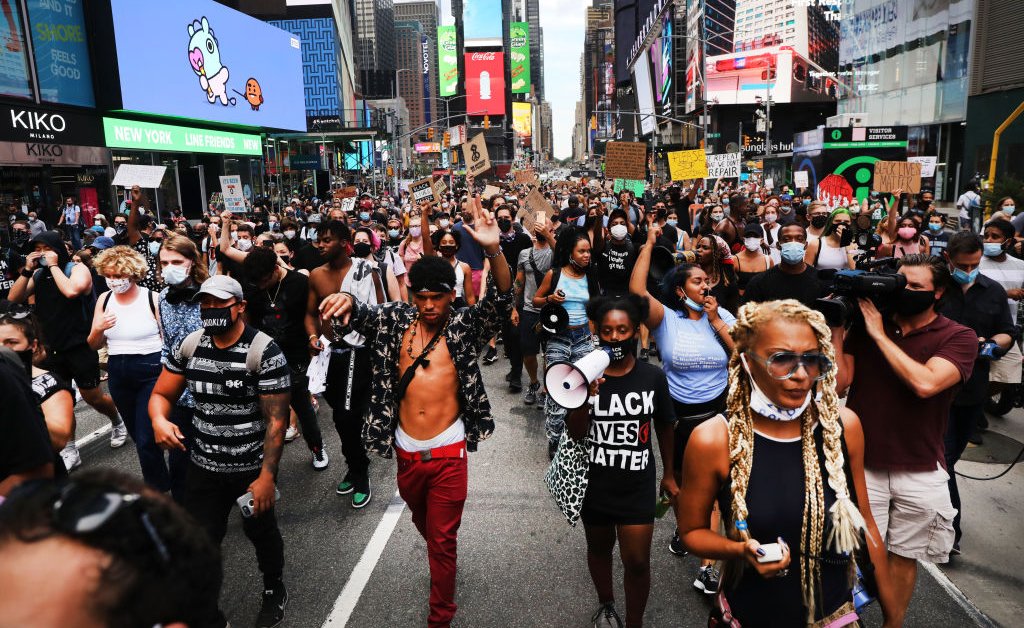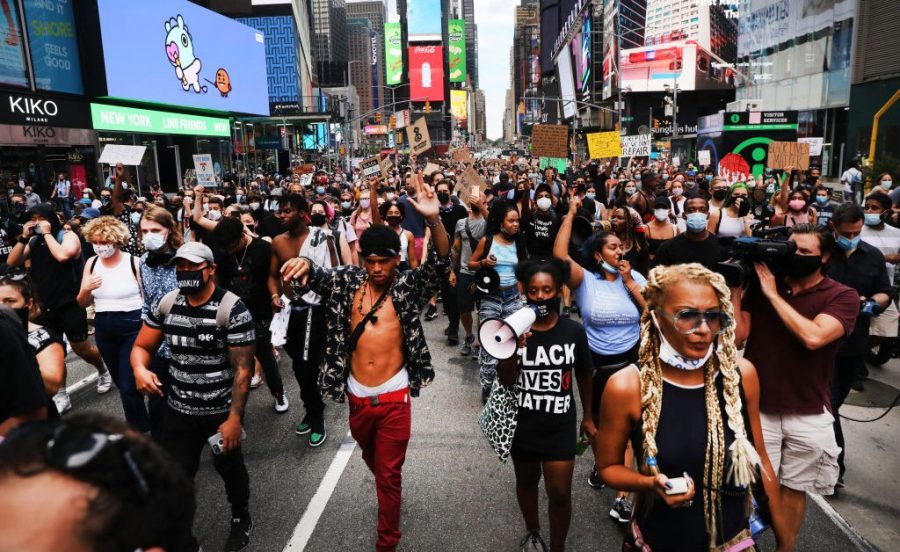Black Lives Matter
NEW YORK, NEW YORK – AUGUST 24: Protesters with the Black Lives Matter (BLM) movement march through Manhattan following the shooting of a Black man by a White police officer in Kenosha, Wisconsin over the weekend, on August 24, 2020 in New York City. The Wisconsin National Guard has been deployed to Kenosha after the man was shot several times at close range in the back during an encounter with a police officer, which was caught on video. (Photo by Spencer Platt/Getty Images)
October 12, 2020
The year 2020 has been like none other–a time of uncertainty, fear, and reckoning. The horrors of racism that might have gone unnoticed before have been brought to the forefront of our lives through social media.

The Black Lives Matter movement is nothing new under the sun. The organization and its popularized slogan were coined in 2013 after the murder of 17-year-old, unarmed, Trayvon Martin by citizen George Zimmerman. The purpose of the movement and hashtag is to raise awareness for the black people whose lives are undervalued by the justice system, law enforcement, and other systems of power.
Every so often since 2013, we have seen a brief resurgence in the movement, such as in the 2014 death of Micheal Brown and the 2015 death of Sandra Bland. However, in 2020, we witnessed an outpour of support for the movement after George Floyd’s murder. This man’s tragic and violent death at the hands of police officers ignited a racial reckoning across the globe.
The protests began in Minneapolis, the city where George Floyd echoed his now infamous words, “I can’t breathe,” after being suffocated by officer Derek Chauvin during an arrest. Several cellphone videos recorded by witnesses were spread online and garnered much attention. The public outcry for Black Lives Matter has brought recent names of black individuals who have died at the hands of police to the light. Breonna Taylor killed earlier in 2020 and Elijah McClain in 2019 have also become two symbols of the racial injustice apparent within our country.
We have made a step in the right direction by recognizing the black bodies violated on the basis of racial discrimination. However, there is much work to be done. These protests accomplished visibility, but not justice for the dead. Only one of the three officers responsible for the deadly raid on Breonna Taylor’s home has been prosecuted. Further, he has only been charged with endangering her neighbors with the reckless use of a firearm. In the case of Elijah McClain, no charges have been brought against the officers responsible for his death. For George Floyd, all of the officers involved have been prosecuted with some charge, though we are yet to reach a verdict.
Besides justice for those whose lives were cut short due to police brutality, police reform must be the product of this movement. America’s lack of an official policing standard makes it extremely difficult to enforce widespread changes in law enforcement practices. Such allows for one police department in a certain town to use oppressive tactics against its people whereas another department would never consider such measures. In order to create a more organized and just police system in this country, we must create and enforce national standards created with the input of voters, law enforcement officers, and civil rights lawyers to keep citizens safe while respecting their rights.
If you would like to be more educated on the movement, its history, and what it stands for, please see the resources below.
Resources:
https://blacklivesmatter.com/
https://www.weforum.org/agenda/2020/06/ally-black-lives-matter-racial-injustice/
https://library.law.howard.edu/civilrightshistory/BLM
https://newint.org/features/2018/03/01/black-lives-matter-changed-politics
https://www.teenvogue.com/story/support-the-black-lives-matter-movement



